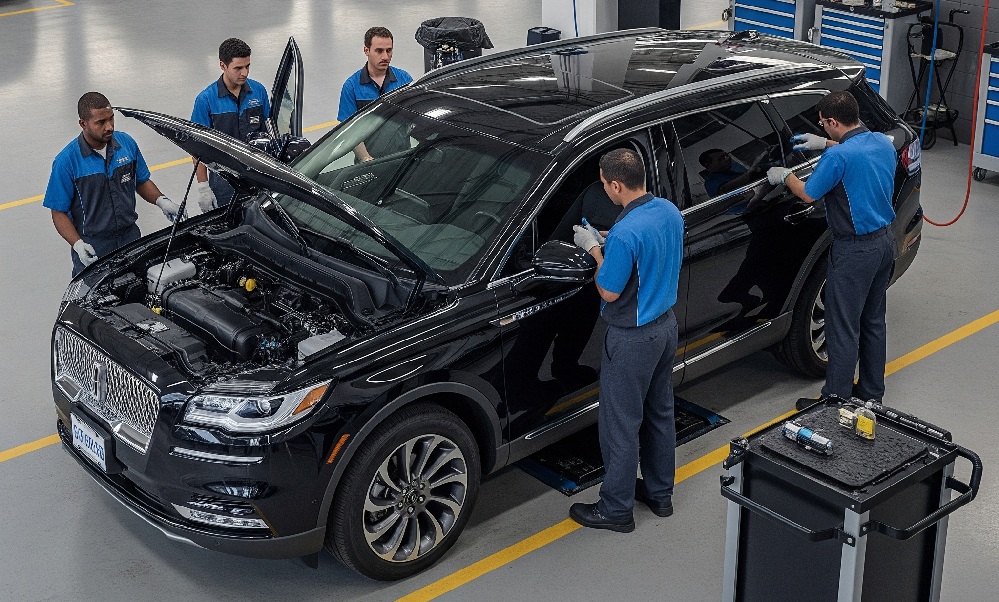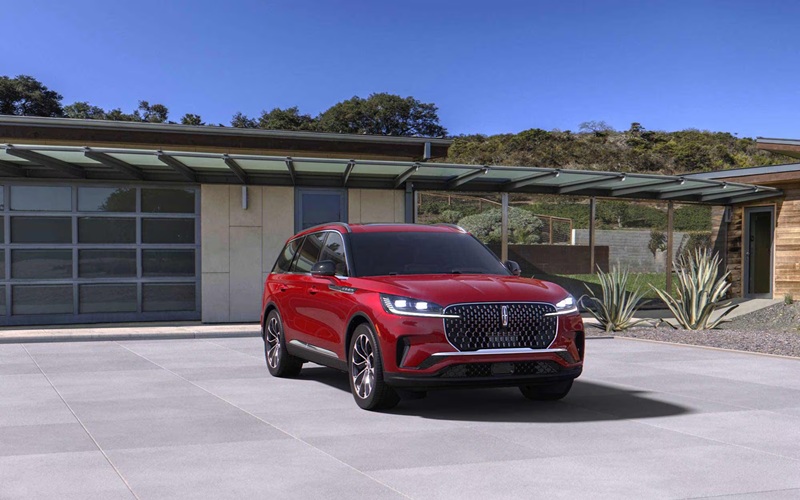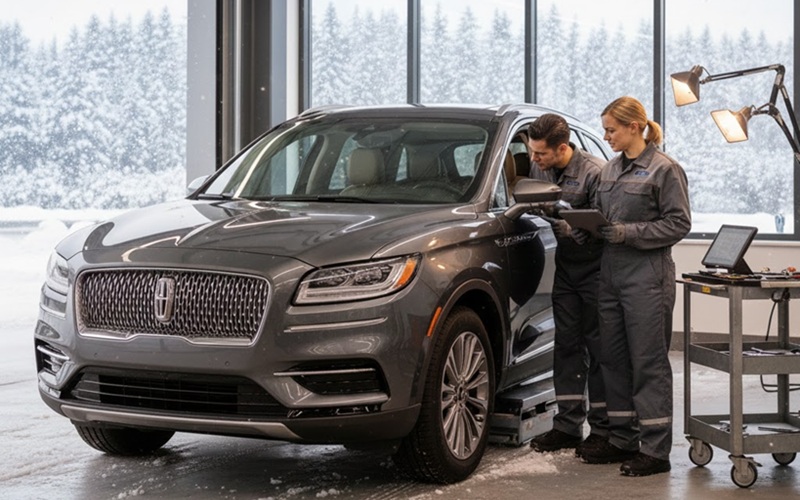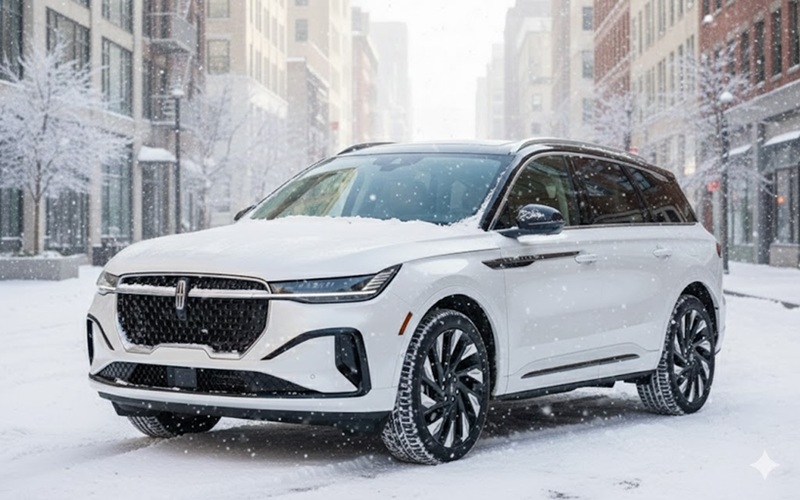In today’s competitive luxury automotive market, the distinction between brands often extends beyond the vehicles themselves to encompass the entire ownership experience. Lincoln Motor Company has recognized this paradigm shift, transforming its approach to SUV service and maintenance into a defining brand characteristic. This evolution represents not merely a change in operational procedures but a fundamental reimagining of what vehicle service can and should be in the luxury segment.

Technological Revolution in Lincoln SUV Service Centres
Lincoln service facilities have undergone a remarkable technological transformation in recent years. Modern Lincoln SUV service centres now employ advanced diagnostic systems capable of communicating directly with vehicle onboard computers to identify issues with unprecedented precision. These systems can detect irregularities in engine performance, transmission behaviour, and electronic systems, often before they manifest as noticeable problems.
Technicians utilize tablet-based service platforms that provide real-time access to vehicle histories, technical bulletins, and manufacturer recommendations. This digital integration ensures that each Lincoln SUV—whether a stately Navigator with its 3.5-litre twin-turbocharged V6 or the compact Corsair with its efficient 2.0-litre four-cylinder—receives precisely calibrated service tailored to its specific configuration and usage patterns.
Most impressively, the Lincoln Remote Diagnostics system can analyze vehicle data from distances up to 500 kilometres away, allowing technicians to prepare for service appointments before the vehicle even arrives at the facility. This remote capability extends to software updates, with many Lincoln SUVs now capable of receiving over-the-air updates to their electronic systems, reducing unnecessary service visits.
Sustainability Initiatives in Lincoln Service Operations
Lincoln has embraced sustainability as a core component of its service philosophy, recognizing that luxury and environmental responsibility are increasingly intertwined values for discerning clients. Service centres have implemented comprehensive recycling programmes for everything from used oil (which is refined and repurposed) to replaced parts (with over 85% of components being recyclable).
Water conservation technologies in Lincoln SUV service centres have reduced consumption by approximately 60% compared to traditional facilities. Automated car wash systems recycle up to 85% of water used, saving an estimated 50,000 litres per month at busy locations. Energy-efficient lighting and climate control systems further reduce each facility’s ecological footprint.
Perhaps most notably, Lincoln has committed to a carbon-neutral service network by 2030, with several locations already achieving this milestone through the utilization of renewable energy and carbon offset programs. This environmental consciousness extends to the products used in servicing, transitioning to biodegradable cleaning solutions and lubricants with reduced ecological impact wherever technically feasible.
Specialized Care for Each Lincoln SUV Model
Each Lincoln SUV model presents unique service requirements that demand specialized knowledge and equipment:
Navigator Service Specifics
The flagship Navigator, equipped with a sophisticated air suspension system, requires precise calibration during routine service to maintain its exceptional ride quality. You can fine-tune the complex adjustable suspension to accommodate different driving conditions and load requirements, maintaining optimal ground clearance between 19.2 and 22.9 centimetres.
The advanced 3.5-litre twin-turbocharged V6 engine in the Navigator delivers impressive performance but requires meticulous attention to its forced induction system. Technicians undergo specific training on turbocharger maintenance, monitoring boost pressures and ensuring optimal performance of the intercooling system, which can dramatically affect both performance and fuel economy.
Aviator Technical Considerations
The Aviator’s available plug-in hybrid powertrain introduces additional service complexities beyond conventional models. The sophisticated system combines a 3.0-litre twin-turbocharged V6 with electric motors to produce a combined output of 494 horsepower and 630 newton-metres of torque. Lincoln SUV technicians are specifically certified in high-voltage system service and battery management protocols, ensuring safe and effective maintenance.
The vehicle’s 13.6 kWh lithium-ion battery requires specialized diagnostic equipment to evaluate cell health and charging efficiency. Service centres maintain dedicated high-voltage service bays with appropriate safety equipment and isolation protocols for these advanced powertrains.
Nautilus and Corsair Maintenance
The midsize Nautilus and compact Corsair, while less mechanically complex than their larger siblings, feature increasingly sophisticated driver assistance technologies that require specialized calibration during routine service. Advanced systems such as Lincoln Co-Pilot360™ rely on precisely aligned sensors, cameras, and radar units that must be recalibrated after an alignment service or after certain body repairs.
These vehicles also utilize advanced turbocharged four-cylinder engines that require specific service protocols to ensure longevity. Technicians follow detailed procedures for these high-output small-displacement engines, which often operate under greater thermal and mechanical stress than larger naturally aspirated powerplants.
Client-Centric Service Innovation
Lincoln has pioneered several service innovations designed specifically around client convenience and transparency:
Virtual Service Advisor
The Lincoln Virtual Service Advisor platform enables clients to receive real-time video updates during vehicle service. Technicians can document discovered issues and recommended repairs through secure video links, allowing clients to make informed decisions without being physically present at the service centre. This technology has proven particularly valuable for clients who travel frequently or maintain residences in multiple locations.
The system provides remarkable transparency, with studies showing that clients who receive visual documentation of service requirements approve 62% more recommended maintenance compared to traditional verbal explanations. More importantly, client satisfaction scores for these interactions average 23% higher than conventional service consultations.
Predictive Maintenance Systems
Lincoln SUVsincreasingly incorporate predictive maintenance technology that analyses driving patterns, environmental factors, and component wear rates to recommend service before problems occur. Rather than relying solely on distance intervals (typically 12,000-16,000 kilometres depending on model), these systems consider actual operating conditions to optimize maintenance timing.
For example, vehicles primarily driven in urban environments with frequent stops may receive earlier brake service recommendations, while those operating in extreme climate conditions might require more frequent fluid changes. This personalized approach ensures each vehicle receives precisely the care it needs based on its unique usage profile.
Mobile Servicing Units
For minor maintenance needs, Lincoln has introduced mobile service units in select markets—specialized vehicles equipped to perform basic maintenance at clients’ homes or offices. These units can complete oil changes, filter replacements, and minor repairs without requiring the owner to visit a service centre.
These mobile units can service vehicles within a 50-kilometre radius of participating dealerships, with each unit capable of completing 8-10 service appointments daily. The service has proven particularly popular with executive clients, with satisfaction rates exceeding 95% among users.
The Economics of Lincoln SUV Service Plans
Lincoln has reimagined its service plans to provide exceptional value while ensuring proper maintenance. Rather than viewing service plans as mere profit centres, they have positioned them as relationship-building tools that encourage long-term brand loyalty.
Premium Maintenance Plans typically cover the first 4 years or 80,000 kilometres of ownership, with comprehensive coverage of all factory-recommended maintenance. The economic advantage for owners is substantial, with studies showing that plan holders save an average of 15-20% compared to paying for individual service visits.
More significantly, vehicles maintained under these plans retain approximately 7% higher resale value at trade-in time, creating substantial downstream economic benefits for owners. Internal data reveals that clients with maintenance plans are 62% more likely to purchase another vehicle, demonstrating the plans’ effectiveness as loyalty tools.
Extended service coverage options can protect Lincoln SUVs for up to 8 years or 240,000 kilometres, with 91% of all potential repair costs covered under the most comprehensive plans. The peace of mind these plans provide has made them increasingly popular, with take rates exceeding 70% on high-end models, such as the Navigator Black Label.
Global Service Standards with Local Adaptation
Lincoln maintains consistent global service standards while adapting to regional requirements and preferences. European service centres, for example, maintain specialized equipment for meeting stringent EU emissions testing requirements, while facilities in extreme climate regions incorporate additional protocols for weather-related vehicle protection.
In the Middle East, where ambient temperatures routinely exceed 45°C, Lincoln service centres implement enhanced cooling system inspections and utilize specialized high-temperature lubricants. Conversely, service facilities in Nordic regions provide comprehensive winterization services, including specialized battery testing and cold-weather protection measures.
This global-local approach ensures that owners receive consistent service quality worldwide while addressing the specific challenges presented by their operating environment.
The Human Element: Lincoln Service Specialists
Despite technological advances, Lincoln recognizes that exceptional service ultimately depends on exceptional people. The brand has developed comprehensive training programmes that extend beyond technical skills to encompass the soft skills essential for luxury client interactions.
Lincoln SUV service advisors undergo communication training developed in partnership with luxury hospitality consultants, learning techniques more commonly associated with five-star hotels than automotive service departments. This training emphasizes active listening, empathetic response, and personalized communication tailored to individual client preferences.
Technical staff progress through a five-tier certification system requiring both theoretical knowledge and demonstrated hands-on proficiency. Master technicians, the highest certification level, must complete over 800 hours of specialized training and pass rigorous practical examinations. These elite specialists typically focus on the most complex systems, such as adaptive suspensions, advanced driver assistance technologies, and hybrid powertrains.
Lincoln SUV Service: A Refined Service Paradigm
The Lincoln approach to SUV service represents a fundamental shift from the traditional transactional model to a relationship-based paradigm focused on long-term client satisfaction. By combining technological innovation, environmental responsibility, and personalized attention, Lincoln has transformed what was historically viewed as a necessary inconvenience into a defining aspect of the ownership experience.
This evolution reflects a deeper understanding of luxury in the modern context—not merely opulent materials and advanced features, but the thoughtful elimination of friction points throughout the ownership journey. As the automotive industry continues its technological transformation, the service philosophy provides a compelling template for how luxury brands can differentiate themselves through exceptional ownership experiences that extend far beyond the product itself.
For owners, this approach delivers tangible benefits in convenience, vehicle performance, and long-term value retention. More subtly, it provides the increasingly rare luxury of time saved and concerns eliminated—perhaps the most valuable commodity in our connected, fast-paced world.


